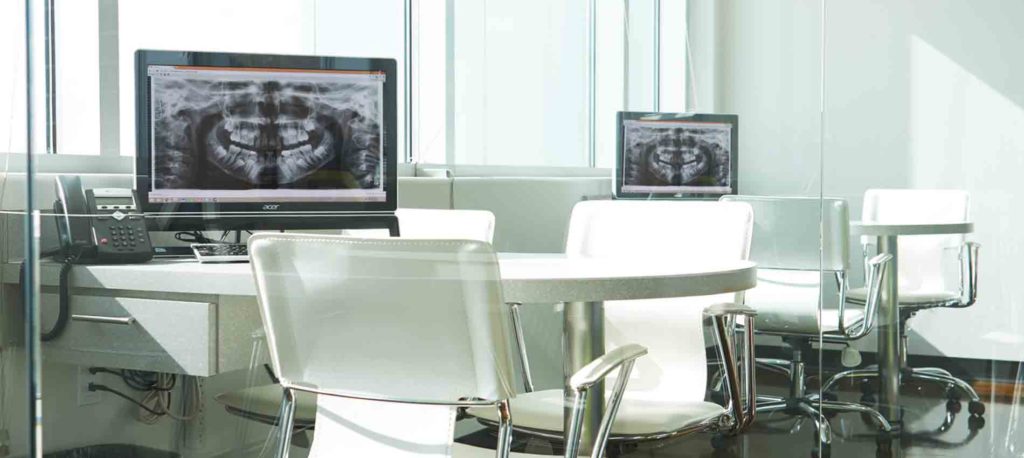As a driven and accomplished individual, you spent many long hours working while your friends played. You graduated top of your high school class, studied hard in college, made it through the rigors of medical school and residency, and worked as an associate of a practice. Now you own your own practice, as a solo practitioner or with partners. You generate revenue, maintain staff, and occupy professional office space.
Understanding how to profitably run your practice is the first step; determining the best way to utilize your income for long-term wealth is the essential next step. Making the right real estate decisions can significantly influence both of these. It is important to understand and analyze your real estate options to determine which option is best for you personally and your practice.
Consider these critical questions:
- Is owning real estate for my practice a good investment?
- When is leasing a solid real estate strategy?
- When is the right time to buy other business investment properties?
- Most importantly – what are ALL my options?
The Three Real Estate Investment Options for Doctors
Typically medical professionals have three options to choose from when it comes to how they can occupy medical office space, and each has advantages and disadvantages.
1. Purchasing Medical Real Estate as an Individual
Commercial real estate can be a sound investment with returns equal to the risk. Historically speaking, real estate can be a good place to protect your money against inflation and banks often offer great financing deals. At the same time, there is also considerable risk. It needs to be said that one should plan a real estate purchase carefully, and one should never purchase just to avoid leasing (there is no such thing as truly free rent). Another key consideration is location. There’s an old adage in the real estate business: it’s all about location, location, location! This rule of thumb should be followed when looking at investment opportunities, AND when planning for the success of your business.
The Pros of Purchasing Medical Real Estate as an Individual
- Fixed Cost: when you own the property, you are able to predict the rent your practice will pay to a greater extent.
- Smart Business: Although owning typically costs slightly more in the short term, it generally makes more sense. If your practice can support it, you should consider it (the logic of “why pay rent to someone else when I could be paying to own it?” does bear out)
- Good for Recruitment: If structured correctly, real estate can be used as part of your recruiting package and create liquidity events for retiring physicians
- Potential Financial Gain: there is always the chance your real estate could appreciate. However, read on.
The Cons of Purchasing Medical Real Estate as an Individual
- Location: you may have to sacrifice location strength and visibility as the perfect location may or may not be for sale when you are ready to or need to move. Prime real estate is typically not a viable cost option for a single practice.
- Commitment: once you buy, it is often more expensive to move when you own, and the capital you’ve allocated to the real estate is fairly illiquid.
- Capital-Intensive: it will typically cost you significantly more cash than leasing and you will no longer have access to that capital
- Attention-Intensive: as the owner, you may need to hire a property manager. All the repairs, fixes, and problems are your responsibility. There is no landlord to call when things go wrong.
- Group Practices: you will have owners buying in and out of the practice. Each individual will have different expectations on how to handle real estate and what is “fair.”
- Lack of Financial Appreciation: specialized medical office condos do not financially appreciate the same way larger, multi-tenant projects do. The buyer of a multi-tenant project is buying an income stream and the buyer of a condo is buying for their specific use and need.
- Loans are Often “Joint and Several”: the ship goes down and some partners go down harder than others. Be prepared.
- Potential Financial Loss: people often invest in real estate expecting an automatic money maker, but the fact is people lose lots of money in the real estate market every day. We understand you might drive around wondering how people own and make money on all of the buildings you see but it’s simply not the case. Many incredibly skilled, smart physicians have lost money investing in real estate. Please don’t invest in real estate with the expectation that you’re guaranteed to make a fortune.
2. Leasing Medical Real Estate
In a lease arrangement, you sign an agreement to pay rent, with many of the same features as signing a loan. A lease often requires a personal guaranty, or if not, your practice will guarantee payment. Generally, you pay for the finish out of the space above a tenant improvement amount paid by the landlord. At the end of the lease, you will walk away from the money you’ve put into the space. When renting, you partially or significantly fund someone else’s mortgage; they are taking on the risk and you are paying the return.
The Pros of Leasing Medical Real Estate
- Reduced Upfront Capital Investment: the funds you save can be used to purchase equipment, hire more staff, or invest in marketing to grow your practice. Returns on investments in your operating business should outpace your real estate investments.
- Flexibility: you have the option to move without finding someone to take your space once the term of the lease is complete.
- Less Risk: real estate market changes will not affect your real estate costs for the duration of your lease; your rent will be what you sign for in the lease.
- Less Responsibility: as a tenant, you simply make a phone call to the property manager when there’s a repair or a problem arises (as an owner, you are personally responsible for all costs and labor around every repair any problem related to your property.)
- Prime Choices: real estate developers typically buy the choicest tracts and divide them up, offering them for lease only, making the prime choices in commercial real estate not available for purchase to individuals.
The Cons of Leasing Medical Real Estate
- Limited Control: you will likely negotiate 50 to 70 terms in a lease document, and it’s likely some will not be in your favor. At some point during your lease, you may experience a situation where you will feel you are being treated unfairly and have limited recourse, even if you have the best lease in the world.
- Loss of Investment: fixtures and build-outs become the property of the landlord at the end of the lease.
- No Investment Value: your lease payments create no lasting value. You’re simply paying someone else’s mortgage.
- Leasing Still Involves Risk: there’s still a risk, even when you’re leasing! If something happens and your practice takes a turn for the worst, you might find yourself in the unenviable position of seeking someone to sublease your space, just as you might need to sell a piece of real estate. Subleases are challenging, risky, and can leave you open to liability.
3. Purchasing Medical Real Estate in Partnership with a Real Estate Expert
When you purchase real estate in partnership with a Real Estate Expert, you’re getting the best of both worlds. There’s the obvious advantage of not shouldering the full burden of the loan, but there’s the critical advantage of having an expert partner to secure better overall terms for the loan and to structure the deal properly. You own the property without all the risk without putting up 100% of the equity and without guaranteeing 100% of the debt. You’re also empowered to consider more locations and options than you might if building a project for just your use.
The Pros of Purchasing Medical Real Estate in Partnership with a Real Estate Expert
- Support: requires significantly less cash equity as another partner (s) are supporting the loan obligation with you; cash obligation is similar to buying a condo unit.
- More Available Capital: income-producing assets are attractive to a wider array of capital with more ways to sell or refinance; they’re simply worth more in a sale or refinance scenario
- More Locations: with a knowledgeable partner building a larger project, you have the opportunity to secure more high-profile locations
- Liquidity: partial ownership in a large cash-flowing asset is more liquid
- Immediate Appreciation: appreciation of the asset and value creation begins the very first day your partners and tenants move into the project; the project value is tied to the rent, instead of a single tenant building, where it is tied to the cost of the project and your ability to find someone who needs the same thing
- Limited Liability: once the building is complete there may be an opportunity to remove personal liability through refinancing
- Equity Refund: once the building is wholly leased there may be an opportunity to return all or most of the equity put into the project through refinancing
- Asset Sale Option: the partnership has the opportunity to sell and create an income event for partners as soon as the building is completely leased
The Cons of Purchasing Medical Real Estate in Partnership with a Real Estate Expert
- Multiple Voices: different partners have different needs, and you may not always agree with every decision.
- More Care Upfront: it’s important to set the partnership up with great care so that everyone’s expectations are aligned. Failure to ensure that everyone is on the same page is a recipe for disaster.
- Part — not ALL — of the Profit: when sharing the work and risk with a partner, the partner will want a part of the profit and upside as well. Obtaining your own financing, maintaining the property, and being a full-time property owner/manager means you will retain 100% of any profit, yet it also entails taking on all of the work and risk. Professional real estate investors earn their returns from partnering with other professionals to find opportunities and deliver projects. Finding the right partner for that next practice location can result in near-term profit and long-term wealth building through passive investment.
The Bottom Line
By now, you’re familiar with the three basic real estate options for medical professionals, you can identify the pros and cons of each, and most likely you have an idea of how those work (or don’t work) with your view of the world. Real estate and commercial real estate investing are by no means a “one size fits all” business and the trick is to fit it to your needs.
At the end of the day, real estate is simply another tool in your success kit. Unlike many other tools, it can be leveraged to grow your business and can help you achieve long-term financial goals. The trick is to find a professional and potential partner who can help you analyze the options that exist within your market prior to moving forward with a commitment.
Critical Real Estate Questions for the Medical Professional
- How proven is my business model?
- Do I have the capital to own the type of real estate that is optimal for my practice?
- Even if I do have the capital, is it best allocated towards real estate or should I consider using it to grow my practice? Which provides a better return?
- Would that capital be better used to expand to additional locations?
- Do I fully understand how to run a comparison of costs and savings of leasing vs. owning in my market? If not, who can guide me?
- What options are feasible within my market?
- Is my instinct to purchase because I have historically heard that owning real estate is better than leasing, or is it really best for my business?
- Do I see myself owning this practice in 5, 10, 15, or 20 years?
- Do I see my practice moving or expanding in 7 to 10 years?
- Is the location where I can own optimal for my practice?
Here at Practice Real Estate Group, we specialize in analyzing the options for healthcare professionals and providing solutions in the shortest period of time possible.
We have the tools, experience, knowledge, and expertise to make this process objective and give you control. It’s critical to understand all your options when making a financial commitment this large, and we’re committed to making sure you understand every aspect of the process.



